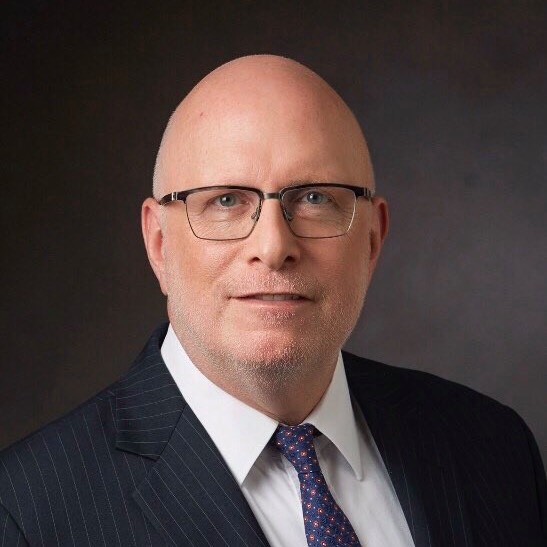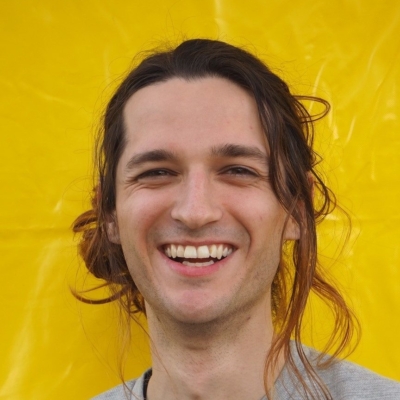トピック:海外で働く。海外で勉強する。成功の秘訣は?

今週、私は世界中を飛び回る起業家・スティーブ・バーンスタインさんにインタビューを行い、海外移住を決めた経緯、そしてその中で得た経験について聞きました。
あなたが育った環境、そして日本を経て香港で暮らすまでについて教えてください。
私はニューヨーク州ブルックリンで育ちました。33歳の時に、ウォールストリート街の名門投資銀行ソロモン・ブラザーズに就職し、ニューヨークにある、海外で働く日本人のクライアントをサポートする部署で働いていました。その後、上司にもっと大きな仕事がしたいとの意向を伝えると、日本に行くのはどうかと打診され、1994年2月に私は日本に移住し、ソロモン・ブラザーズの財務部門で働くことになりました。
その頃には日本人やその習慣に慣れており、日本語も少しだけ話せました。 また、既に日本人のクライアントと一緒に仕事をしていた私にとって、日本人は単純なる“外国人”という存在ではありませんでした。そしてこの経験が私の国際金融としてのキャリアの第一歩となったのです。
私はそれから数年間日本に拠点を置き、現在は香港で暮らしています。数年前に日本に戻っているので、日本での生活は合計で約8年間になります。
海外での生活では、多くの新しい経験が得られます。あなたの場合、比較的仕事上に変化はないと思われますが、日常生活や日本の文化にどのように適応したのですか?
以前から私は日本に何度も来ていました。出張の場合はホテルを拠点にオフィスに行ったり外出したりします。しかし、実際に日本に住居を持ち生活をするとなると状況は一変しました。私は、海外に移住する際に多くの人が犯す最大の過ちは、『慣れ親しんだ人とだけ付き合う』ということだと思うのです。ニューヨークで暮らす日本人は大抵、日本食レストランで食事をし、日本人のコミュニティの中で過ごします。それはとても楽なことです。同じように、日本で暮らす外国人もまた、外国人のコミュニティに参加し、外国人に人気のあるエリアに住めば、日本という異国の文化に触れること、ましてや箸を使う必要さえもありません。でも、それは大きな間違いであり、すこし寂しいと思うのです。
私が日本で生活する時は、あえて外国人に人気のスポットからは遠ざかり、より日本の文化に溶け込むように務めましました。家の中でその国の文化を学ぶのではなく、実際に地元の人たちとつながるような場所に自ら出向き、彼らが何をしているのかを学んだり、同じように行動してみると、生活はもっと楽しくなってきます。
さらに言えば、私の知っている日本に暮らす外国人の大半は、日本での生活を本当に楽しんでいます。 「ピザはニューヨークのほうがいい」とか、「劇場はブロードウェイのほうがいい」などと常に比較しないことです。あなたが今暮らしている場所とあなたの本当の家を比較していると、世界のどこにいたとしても、その場所を心から好きになることはできないでしょう。このことを理解することが大切です。
あなたは日本人についての情熱について触れ、何にでも興味を持ち、そこでのコミュニティの作り方を見つける方法について教えてくれました。この「情熱」は、日本人留学生が留学する際の道しるべになると思いますか?
はい。日本の学生が何かに情熱を傾けているのと同じように、アメリカの学生も何かに情熱を傾けています。それは日本の文化であるマンガ、アニメなどかもしれませんし、楽器を楽しむこと、物を書くこと、ラップなど、何でもいいのです。
日本人と同じようにアメリカ人も情熱を持ち、ソーシャルメディア、イベント、ダウンロードしたアプリなどでコミュニティを見つけ出します。まだ特定の興味がないにしても、何かを見つけたいのであれば、アメリカのどこにいても志を同じくする人を見つけることができるはずです。
大学で金融を勉強したのですか?
はい。私はボストン大学で、コンピューターサイエンス学科の副専攻で金融を学びました。入学した頃から既に金融で働きたいと思っていたので、そのための道を整えました。私は、大学が夏休みになると金融業界で働きました。マイク・ブルームバーグは、私の最初の上司でした。私が彼と働いていたのは、彼が財務分析を専門とするブルームバーグの会社を始める前のことです。
私の兄達は、シラキュース大学に進み地元のブルックリンで暮らしています。家を離れることはなく、常にアメリカを拠点に生活しています。一方、私は夏になるとサマーキャンプに行きました。私には双子の兄弟もいるのですが、彼は中国に行き、今では5つの言語を話すほどです。そして、タイや中国などを旅した後、現在はハワイに住んでいます。私は、香港と日本で生活しました。私と双子の兄弟は、両親が私たちの兄達を過保護に育てて来たのを見ていたせいもあり、それよりももっと大きな世界に見聞を広げたいと思いました。
人は一度世界を知ると、それをさらに広げていきたいと考えるものです。現在南カリフォルニア大学(USC)に通っているハワイ出身の22歳の友人と話をした時、彼は最初ものすごくホームシックになったそうですが、しばらくして、自分はハワイとUSCしか知らないが、これからはもっとたくさんの世界を見てみたいと考えるようになったと言っていました。彼の今の目標は、多くの国での生活を経験することだと言います。
住み慣れた日々の暮らしの中で、ソファに座り、テレビを見て、9時から5時まで働き、帰宅するとまたソファに座ってビールを開けるという日常を送ることはとても楽なことです。その一方で、日本の学生たちの中には海外への関心を持ち、世界が広いということに気づく人もいます。そしてそういった人たちは世界中に友達を作り始め、集中的に言語を学び、新たなキャリアのチャンスやその中で 家庭を築いたりと人生が広がっていきます。
ニューヨークで働いていた頃、私の会社では、日本の担当者を2〜3年のスパンでニューヨークに招いていました。ニューヨークに住んだ彼らの誰もがニューヨークを離れたくないと言っていました。彼らはニューヨークをとても愛するようになったのです。日本に行ったときの私は、反対に日本を離れたくないと思いました。
知らないことを経験するというチャンスは、あなた自身が一歩踏み出さない限り訪れません。 慣れ親しんだ日常の外に出なければ、新しい経験をすることはできないのです。留学は、新たな一歩を踏み出すのに最適な機会です。
御社の日本人社員は、アメリカの文化に慣れるのに苦労しましたか?彼らがアメリカでグローバルに成功できた理由は何だと思いますか?
彼らは、東京の外資系企業で働いていたので、すでに典型的な日本人とは違っていました。第一段階は、あなたが外国人と仕事をし、交流したりする意欲があるかどうかです。
日本人社員たちは、騒々しいニューヨークの株式取引所の中で正確な仕事をすることに集中しなければならなかったので、ニューヨークのアメリカ文化に慣れることに費やす時間がありませんでした。しかし、それも学ばなければなりません。
夫婦で夕食を共にした日本人男性のことをよく覚えています。その男性は英語が話せましたが、奥さんは話せませんでした。その時彼は最近アパートを見つけたと話しましたが、そこがニューヨークの郊外の危険な場所であることについては知らなかったのです。私は彼に『奥さんが安心して出かけることができ、あなた自身も安全に仕事ができるように、もっと市の中に住むほうがいい』とアドバイスしました。彼女が本当の意味でのニューヨークの生活を知ることができる場所にした方がいいと。彼は私のアドバイスを受け入れ、別の場所に引っ越し、そこでの生活を楽しむことができました。彼らは、かつて私が日本に移住し、誰からもアドバイスを受けずどこに住むべきかわからなかった時のように、ニューヨークの生の情報を知らなかっただけなのです。
このように、最初は他の人の経験に頼らなければなりません。しかしその後は、自分で街を発見するという楽しみが続きます。あなたのお気に入りを見つけることです。
私と私の妻ジェニファーは、街を歩くのが好きです。東京にいるときは、近所を散歩しバーを 見つけたりしながら、いいなと思えばそこに立ち寄ったりします。また、お店に入ってみると 新しい出合いがあります。時々、電車に乗ってランダムに駅を選びその周辺を歩き回ることがあります。アメリカでも同じです。バスパスやアムトラックパスを取得して、その国を実際に探求するのです。楽しいですが、最初はみんな緊張します。それは当然のことです。でも、好奇心は、きっとあなたをそのような道に導くでしょう。
原文紹介
Interview: Steve Bernstein
Topic: Working Abroad, Studying Abroad, What Qualities Bring Success
This week I had the chance to sit down with Steve Bernstein, an entrepreneur who’s been living around the world, and asked him about how he decided to move abroad and what the experience was like.
If you would introduce yourself and give us the short version of how you ended up living in Hong Kong?
I grew up in Brooklyn, New York. I was about 33 years old, working on Wall Street at Solomon Brothers. I worked at a desk covering Japanese clients who were based in Japan but working abroad in New York City. I said I wanted a bigger job and my bosses came back to me asking if I would move to Japan. I moved t
here in February, 1994 to run a division for Solomon Brothers in finance. So I was already familiar with Japanese people, Japanese customs… I spoke a few words of Japanese, but not too many. It wasn’t completely foreign to me since I was still in the office working with clients but it did start me on an international finance career. So I lived in Japan for a few years. I live in Hong Kong now; moved back to Japan a few years ago so my total time in Japan was about 8 years.
Moving abroad can be filled with a lot of new experiences, and while work life for you was relatively unchanged, how did you adjust to public life and Japanese culture at large?
I used to visit a lot, but when you go on a business trip and you’re living in a hotel, going to the office, going out, the experience is different than living there. The biggest mistake people make is that it’s very easy to only hang out with people you’re familiar with. If you’re Japanese living in New York it’s very easy to only eat at Japanese restaurants and hang out with the Japanese community, which is quite big. Similarly with foreigners living in Japan it’s easy to join the American club and live in the areas popular with Americans and just never interact with the culture, never have to use chopsticks. I think it’s a big mistake. I think it’s kind of sad. For me, every time we moved back to Japan we moved further out from the foreign hotspots to be more ingrained in the culture. If you’re going to go somewhere you’re going to enjoy it much more if you’re interconnected with locals and you’re trying to learn and mimic what they do, instead of just doing what you do back home.
The other thing is, 99.9% of the people I know LOVE living in Japan. The people I’ve found that don’t are the people who constantly compare it: “The pizza is better in New York” or “the theatre is better on Broadway.” If you compare where you’re living to your home, no matter where you are in the world you’re not going to like the place as much. You have to take it for what it is.
You spoke about the passion of Japanese people, and how you can find a thriving community no matter what your interests are. Is this “passion” something you think would be an asset for Japanese students to bring when they study abroad?
Yes, I think it can. I think Japanese students will find that if they’re passionate about something — it can be anything: manga, anime, something Japanese — you’ll find people in America who love it. If you’re into a certain musical instrument, writing, rap, whatever you enjoy as a Japanese individual, Americans are equally as passionate and you will be able to find communities very easily with social media, events, and all of the apps available. Or if you want to find more diverse interests, students may not have specific interests yet, but anywhere you are in America you will be able to find like-minded people.
Did you study finance in university?
Yes, I was in Boston University and I studied finance with a minor in computer science. From freshman year I knew I wanted to work in finance so I geared my path towards that. I worked summer jobs in finance. Mike Bloomberg was actually my first boss. This was before he started the Bloomberg company which specializes in financial analytics.
My older brothers lived a very provincial life. They always lived in Brooklyn, went to college at Syracuse University, but they never really left home, and always stayed domestic. I went to summer camp, my twin went to China for the summer and now he speaks 5 languages. He’s traveled to Thailand and China, now he’s living in Hawaii. I lived in Hong Kong and Japan, we saw how protective our parents were with our older siblings and so my twin and I wanted to spread our wings. Once you do that, you realize how much more you want to keep spreading them. I just spoke to a 22 year old friend, born and raised in Hawaii and now he’s going to the University of Southern California (USC), and he said how the first week he was so homesick, but after that he realized how much of the world he has the opportunity to see and as of now he’s only seen Hawaii and USC. So his whole goal now is to spend more time overseas.
It’s very easy to get in your comfort zone and sit home on the couch, watch TV, go 9-5 to work, come home and open a beer on the couch. But Japanese students find that with an interest to go overseas, their whole world is going to open up. They’re going to make friends globally, they’re going to learn languages faster by immersing themselves. It will open up career opportunities, and marriage opportunities. When I worked in New York our company would have Japanese representatives come over for 2-3 years at a time and none of them ever wanted to go back home. They just loved New York City so much. And it was the other way when I went to Japan. I never wanted to go back home. You don’t know the things you don’t know. If you never go outside your comfort zone, if you never experiment, you never learn anything new. Studying abroad is a great place to start.
Speaking of the Japanese rotation staff at your company, did you find they had trouble adjusting to American culture? What qualities do you think they exhibited that made them successful international workers in America?
They all worked at a foreign firm in Tokyo so, in that way, they were already willing to step outside of the more typical domestic Japanese experience. The first step is knowing that you are willing or want to work and interact with foreigners. The rotation workers were operating on a stock trading floor in New York so it’s loud and bustling, so they didn’t have much time to worry about adjusting to American culture in New York because they were so focused on getting everything right at work. But they have to learn. I remember one Japanese guy who came over with his wife to have dinner; she didn’t speak any english, his was okay. So he tells me he recently found an apartment. He didn’t know that at that time, the area he was moving to was a dangerous place on the outskirts of the city. I told him, you need to move closer to the main city so your wife can go anywhere and be safe and engaged in the city. She needs to be somewhere she can really learn to live in New York. He took my advice and moved to a different area and loved it.
So, the problem he was facing was that he just didn’t know the inner workings of the city. He just didn’t know. Like when I moved to Japan and I didn’t know where to live, I went off recommendations. So in the beginning you have to rely on other people’s experience. But after that comes the fun part, which is discovering the city yourself. Finding things that you like. You know my wife Jennifer and I, we’ll just walk around in certain cities. When we’re in Tokyo we’ll just walk around the neighborhood and see a bar and think, oh this looks cool, let’s go here. Or go into a store and just try and meet new people. Sometimes we’ll just get on a train and pick a random stop to get off at and walk around. So that’s the thing in America, you can get a bus pass or an Amtrak pass, and really explore the country. That’s part of the fun, and everyone’s nervous in the beginning, it’s only natural, but if you have that curiosity inside you, it will take you places.



